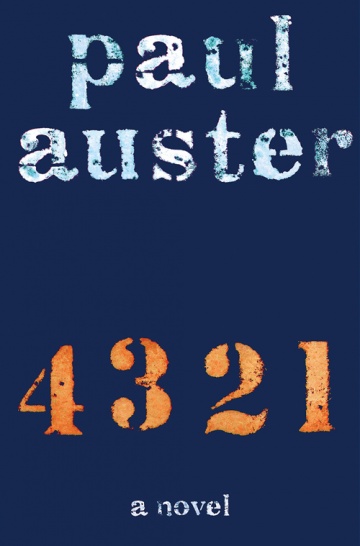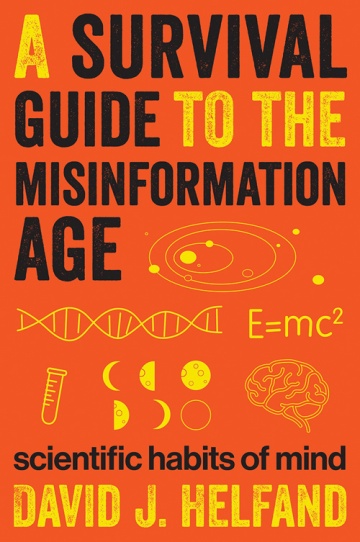Columbia College | Columbia University in the City of New York
Bookshelf
Avid Reader: A Life by Robert Gottlieb ’52. Esteemed writer and editor Gottlieb chronicles his life through a series of literary inspirations — from the books that enthralled him as a child to editing at The New Yorker, the author’s passion for words prevails. For the art of writing he maintains a reverence in good times and in bad, reflecting, “I couldn’t know that, as would be the case my entire life, it was work that would save me” (Farrar, Straus and Giroux, $28).

Conversation with Johnny: A Novel by Anthony Valerio ’62. Valerio redefines Italian-American mob stereotypes in this novel about Nicholas and Johnny — a lover and a fighter — who engage in therapeutic, quasi-philosophical dialogue. Originally published in 1997, the new Kindle edition provides a chance to discover Valerio’s comic twist on an old premise (Tempi Irregolari, $6.99; Kindle edition).
The Case Against Free Will: What a Quiet Revolution in Psychology has Revealed about How Behaviour is Determined by David A. Lieberman ’65. Could the actions of human beings be predictable? In this analytical book, Lieberman sets forth an argument outlining the probability for determinism, without associating inevitability with doom (Palgrave Macmillan, $79).
When Movies Were Theater: Architecture, Exhibition, and the Evolution of American Film by William Paul ’66. The histories of theater, architecture and motion pictures converge as the author explores the ways in which one’s experience of a movie is influenced by the setting in which it is viewed. What is the significance of the relationship when one now has the ability to experience film anywhere, on a smartphone or other digital device (Columbia University Press, $40)?

4 3 2 1: A Novel by Paul Auster ’69. Auster’s first novel in seven years tackles ideas of identity, following Archibald Isaac Ferguson from birth, as this singular life takes four synchronous but different paths. Same person, same body, four different loves and lives (Henry Holt & Co., $32).
State of Nature, Stages of Society: Enlightenment Conjectural History and Modern Social Discourse by Frank Palmeri ’74. When it comes to the social sciences, certainty may not be the most useful tool. Palmeri studies various Enlightenment philosophers who “changed the intellectual paradigm” with their use of conjectural history, providing the basis for modern-day study and understanding of the early world (Columbia University Press, $70).

Black Deutschland by Darryl Pinckney ’88. The author’s sophomore novel follows Jed, a young man marginalized in America for his sexuality and his race who is seeking escape. Newly sober in Berlin, a city roused by political turmoil, Jed encounters both salvation and the lure of self-destruction. Which of these forces will take control: despair or hope (Farrar, Straus and Giroux, $26)?
Questioning Return by Beth Kissileff ’90. In this novel, graduate student Wendy Goldberg spends a year in Jerusalem aiming to uncover the motivations of American Jews who return physically and spiritually to religious tradition. Very quickly, however, she finds her objectivism has become twisted and wonders whether immersion causes more problems than it solves (Mandel Vilar Press, $19.95).
Victor in the Rubble by Alex Finley ’94. What do a U.S. foreign intelligence agency and an international terrorist organization have in common? Heavy-handed bureaucracy. This satirical novel follows a global terrorist on the run and the American officer responsible for catching him. Finley draws upon her experience in the CIA to put a comedic spin on a serious theme (Smiling Hippo Press, $14.99).
For the Love of Money: A Memoir by Sam Polk ’01. Polk details his journey from greed to generosity as he left the wealth-obsessed culture of Wall Street for the nonprofit world. He learned how to extract his feelings of self-worth from his staggering need for constant achievement (Simon & Schuster, $24).

The Last Days of Night: A Novel by Graham Moore ’03. Based on true events, screenwriter Moore’s second book follows Paul Cravath, a young lawyer hired to defend a man being sued by Thomas Edison over the rights to and powers of electricity. In a world where hidden motives are ever-present, who will emerge victorious, and to what lengths will they go in order to do so (Random House, $28)?
Cracking the Cube: Going Slow to Go Fast and Other Unexpected Turns in the World of Competitive Rubik’s Cube Solving by Ian Scheffler ’12. From a conversation with Erno Rubik to tricks and tips from other cubers, Scheffler learns not only about skill but also about life, using the cube as a metaphor for the modern world: “It’s hard to solve. It doesn’t submit easy answers. And once you solve it, you have to start all over again” (Touchstone, $26).

A Survival Guide to the Misinformation Age: Scientific Habits of Mind by David J. Helfand, professor of astronomy. An “antidote to the misinformation glut,” this book works to navigate a world in which information is infinite but accuracy is scarce. Hailing rational analysis as the skill that all need but many lack, Helfand urges the reader to push past the search for so-called “truth” to get to what will take the human species furthest: understanding (Columbia University Press, $29.95).
— Aiyana K. White ’18
Issue Contents
Published three times a year by Columbia College for alumni, students, faculty, parents and friends.
Columbia Alumni Center
622 W. 113th St., MC 4530, 6th Fl.
New York, NY 10025
212-851-7852
cct@columbia.edu
Columbia Alumni Center
622 W. 113th St., MC 4530, 4th Fl.
New York, NY 10025
212-851-7488
ccalumni@columbia.edu

